12 kitchen benchtop materials to consider in 2025

There are now more kitchen benchtop materials to consider than there has ever been which is a great situation for homeowners to enjoy. Of course, this does come with the challenge of deciding which one will work best for you but on the balance of things, it's a good problem to have. These are some of the most popular benchtop materials to consider in Australia today.
1. Acrylic
Acrylic benchtops have seamless joins and are completely non-porous, making them stain-resistant and easy to keep clean. They are also more hygienic than many other options. After some wear and tear, the surface can be polished to make it look new again.
There are plenty of colour and design styling options, and acrylic benchtops can be moulded into any shape with ease.
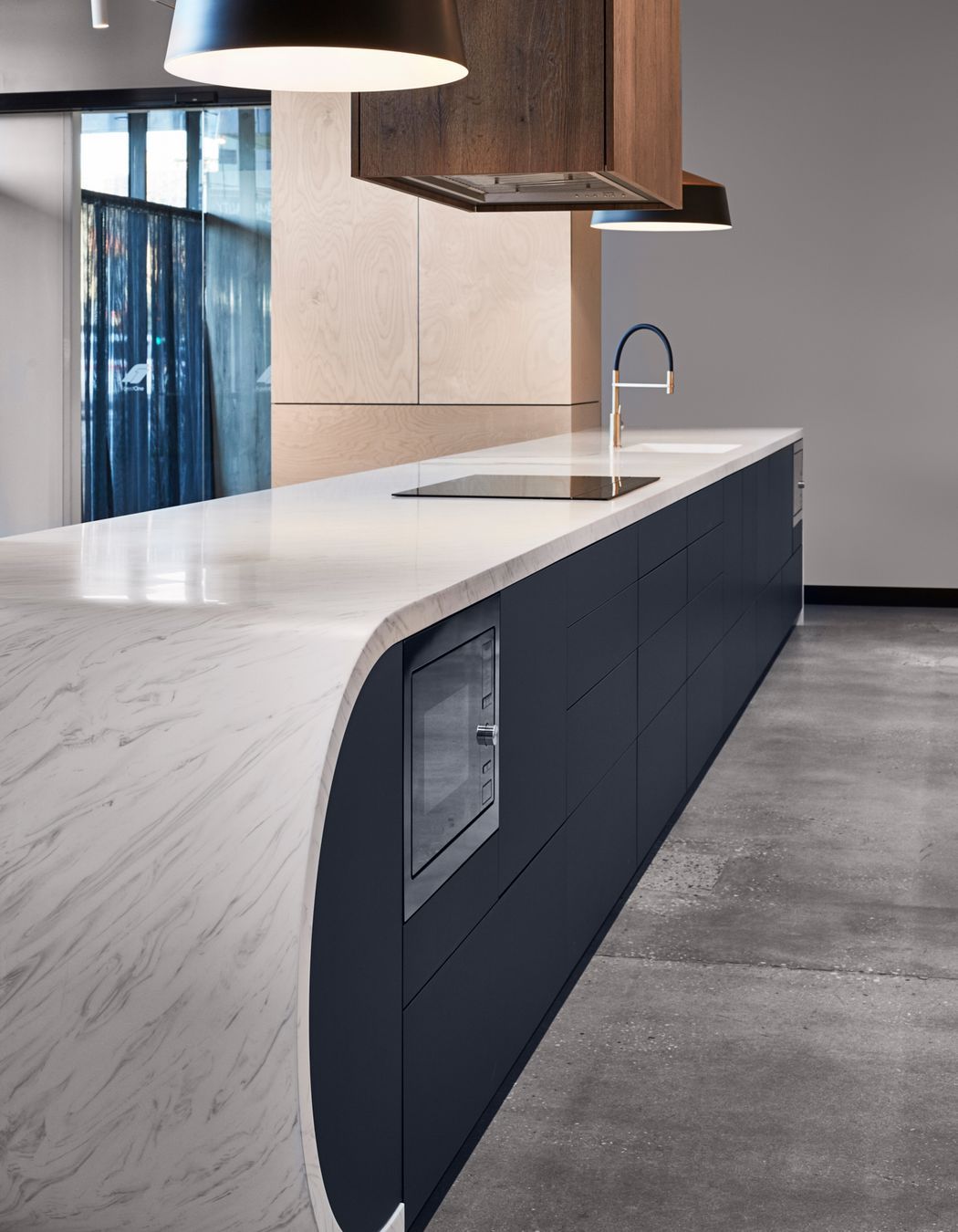
2. Timber
Timber is a classic choice for kitchen benchtops, as wood helps to give natural warmth and character to any room. You can choose from a range of species to get the type of tone that you want.
A timber benchtop will need to be coated before use. This can be with food-safe oil or polyurethane, which will make the benchtop safe for a kitchen environment, and help protect it from damage.
When choosing the coat be aware that oil must be reapplied yearly. Polyurethane will last longer, but to properly re-coat it you will have to sand the entire surface of the benchtop first.
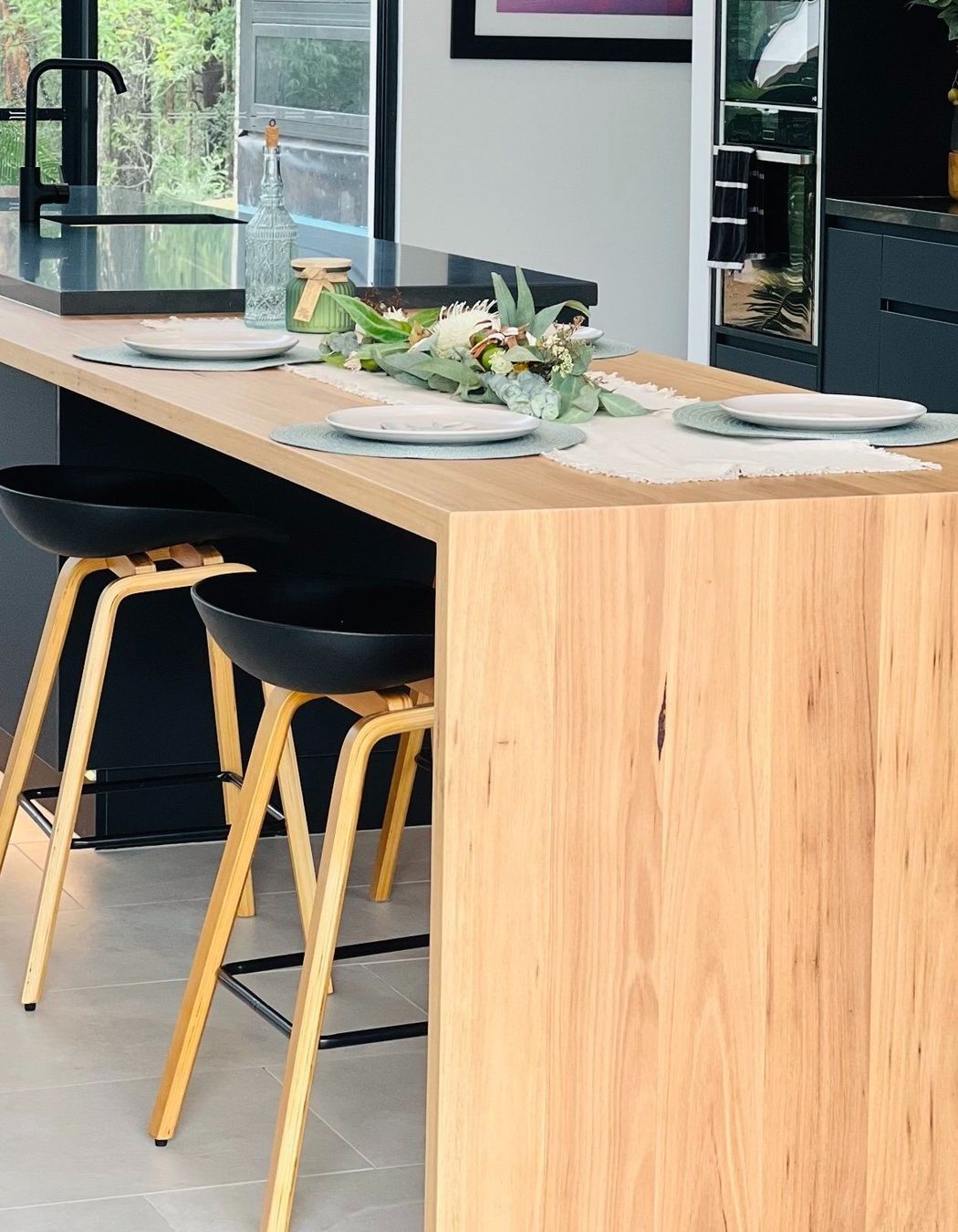
3. Engineered Stone
A popular choice for kitchen renovations, an engineered stone benchtop can come in a range of colours. It's made of a mixture of aggregates and resins, allowing for solid colours, mixed colours, and additional flecks, so a suitable look can be found for any kitchen.
A common choice for engineered stone is quantum quartz as it's is highly durable, and resistant to staining/scratching. This is ideal if you're after something that is going to last.
Engineered stone benchtops may contain silica, and precautions must be taken during installation to ensure safety.
Related article: Kitchen bench dimensions — how to choose the best fit

4. Stainless Steel
Stainless steel is a popular choice in commercial kitchens due to its functionality. It is incredibly durable, and heat resistant, so hot pans won't be an issue. Stainless steel is also a very hygienic option, being very easy to clean.
The whole benchtop can be seamlessly integrated with sinks and splashbacks, so there are no cracks for excess food or dirt to get stuck in. The surface will scratch and fade with time, but repolishing every 5-10 years will make it look brand new.

5. Laminate
A laminate benchtop is ideal if you are on a budget. It's an affordable option but still has some major advantages. Among kitchen benchtop materials, laminate offers one of the widest ranges of colours and patterns.
Laminate is quite resistant to staining and easy to keep clean but is also susceptible to scorching and scratching. As long as the user is vigilant when cutting or using hot pots/pans this shouldn't be a major issue.
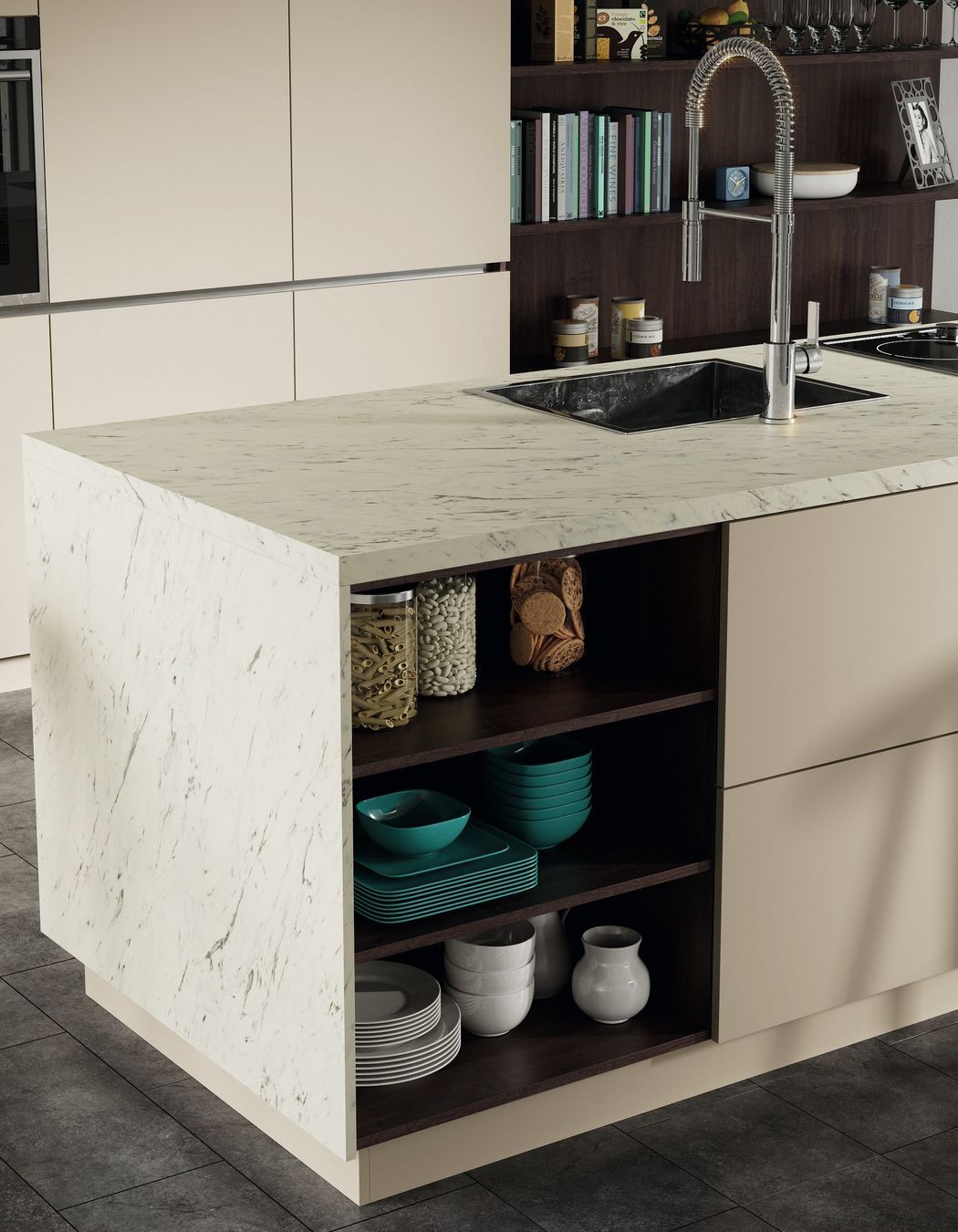
6. Granite
Granite has an impressive appearance and is one of the most hard-wearing materials available for kitchen benchtops. These desirable characteristics make it the second most expensive option after marble.
You can find granite benchtops in a range of colours and styles, and it is relatively easy to maintain. Usually, you will just need some soap and water to keep it clean.
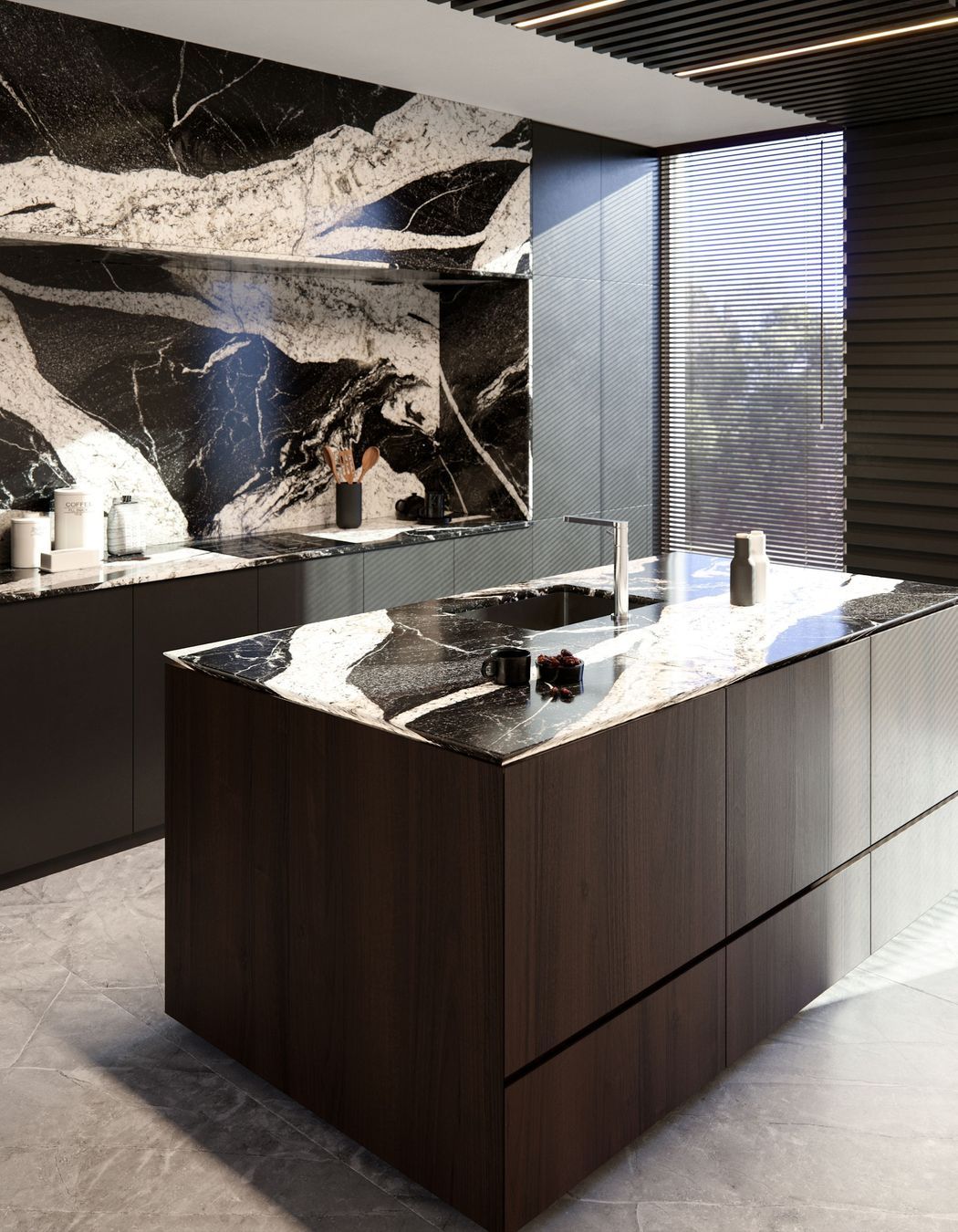
7. Natural Stone
One of the major appeals of natural stone is that every benchtop has a unique appearance. Because of this, it is best to visit warehouses in person to make sure you get exactly what you're after.
Stone benchtops can be finished with gloss for a polished look, or honed to give a matt appearance. Natural stone is a great choice when looking at solid surface benchtops, but is quite porous so spills should be cleaned up as fast as possible.

8. Concrete
Concrete is both durable and aesthetic. It fades with time, but many consider this change in appearance to be an improvement. Polished concrete has become a very popular choice, giving a sleek and modern feel to your kitchen.
Maintenance is relatively simple, and concrete is quite resistant to heat and stains. Well maintained concrete benchtops will last for years.

9. Marble
A marble benchtop has long been a popular choice due to its luxurious appearance which undeniably has few rivals. This is also the reason it is common in things such as mantle pieces, statues, and architecture. Marble serves well as a benchtop and splashback material, but bear in mind that the impressive appearance comes with drawbacks.
The porosity means that it will absorb spills quickly, which will affect the appearance of the benchtop. Of the materials on this list, marble requires more maintenance than most and is one of the most expensive, so consider this before settling on it.
Related article: Limestone vs marble: which material is better for your kitchen benchtop?
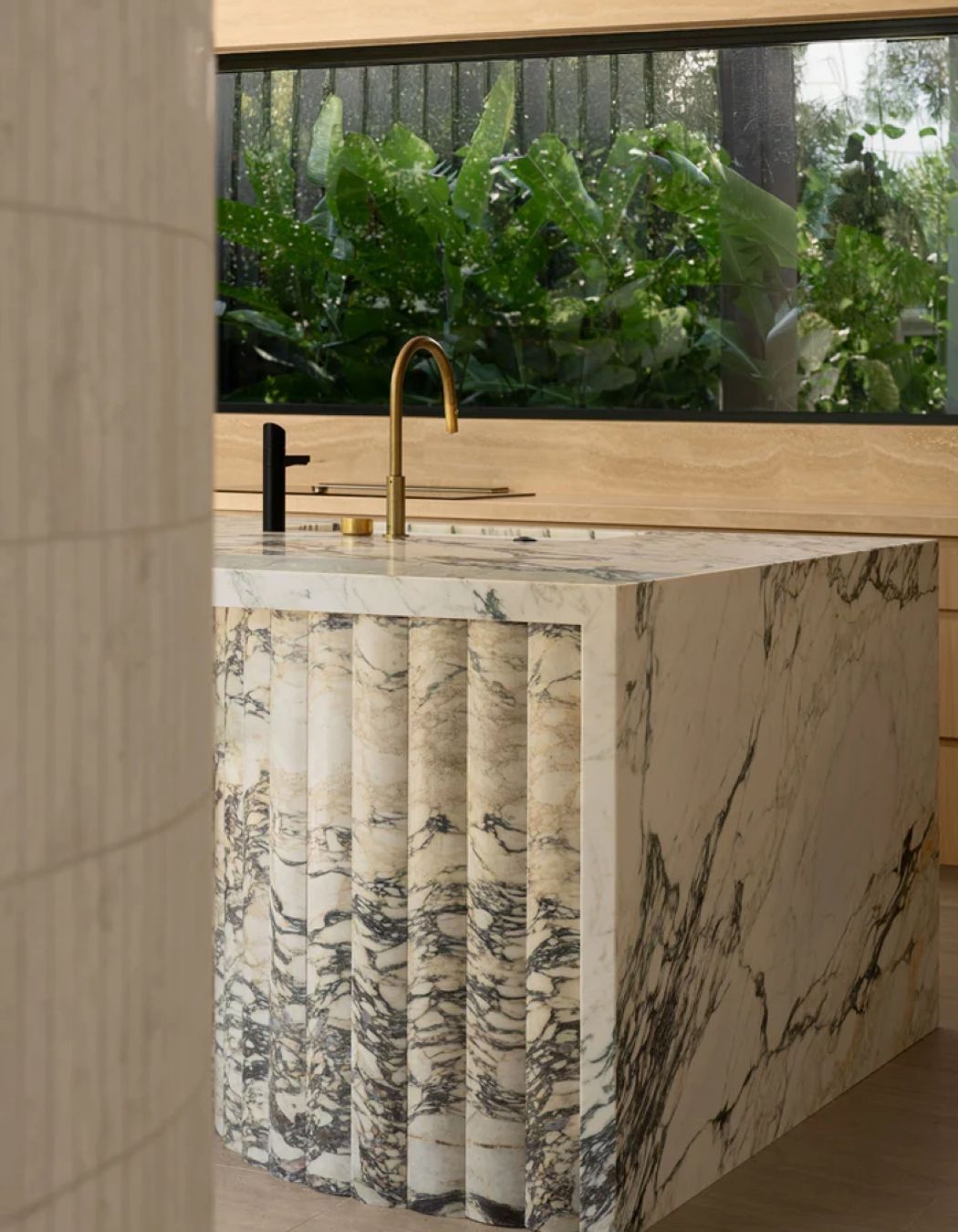
10. Bamboo
If you want to use natural materials, bamboo is one of the most eco-friendly options available. It is versatile enough to suit any kitchen well, and it is naturally hard-wearing and water-resistant.
Like timber benchtops, bamboo needs sealing regularly with oil. It is not the most damage resistant material around, but scratches can be easily fixed by sanding the surface and reapplying the oil.
Sometimes bamboo benchtops can have small gaps due to the way it grows, but these can be remedied with a small amount of filler.
11. Porcelain
Porcelain is a great option for durability and longevity. It is resistant to scratching, staining, and heat, making it ideal for use in a kitchen. On top of this, it has very low porosity, so spills are of little concern and it is great for hygiene.
Even with these many advantages, it is still quite affordable compared to other kitchen benchtop materials. The surface can also be made to mimic other materials including wood, stone, and concrete.

12. Tiles
Having a tiled benchtop gives numerous style options. Porcelain is a typical material for this (though there are others), with the advantages of being hygienic and resistant to stains, scratches, and heat.
You can even use porcelain tiles outside, so you can match your outdoor space with your kitchen for a consistent appearance. You can choose from various styles and have the tiles cut to easily fit any space.
The best kitchen benchtop materials for you
With the wide range of options for kitchen benchtop materials, settling on one can be difficult. However, by understanding the various factors like cost, appearance, maintenance, design and their natural characteristics and qualities you’ll be best-placed to make the most informed choice which will no doubt be the most suitable one too.
Article last updated: 6th March 2025
Discover a stunning range of premium kitchen benchtops on ArchiPro
